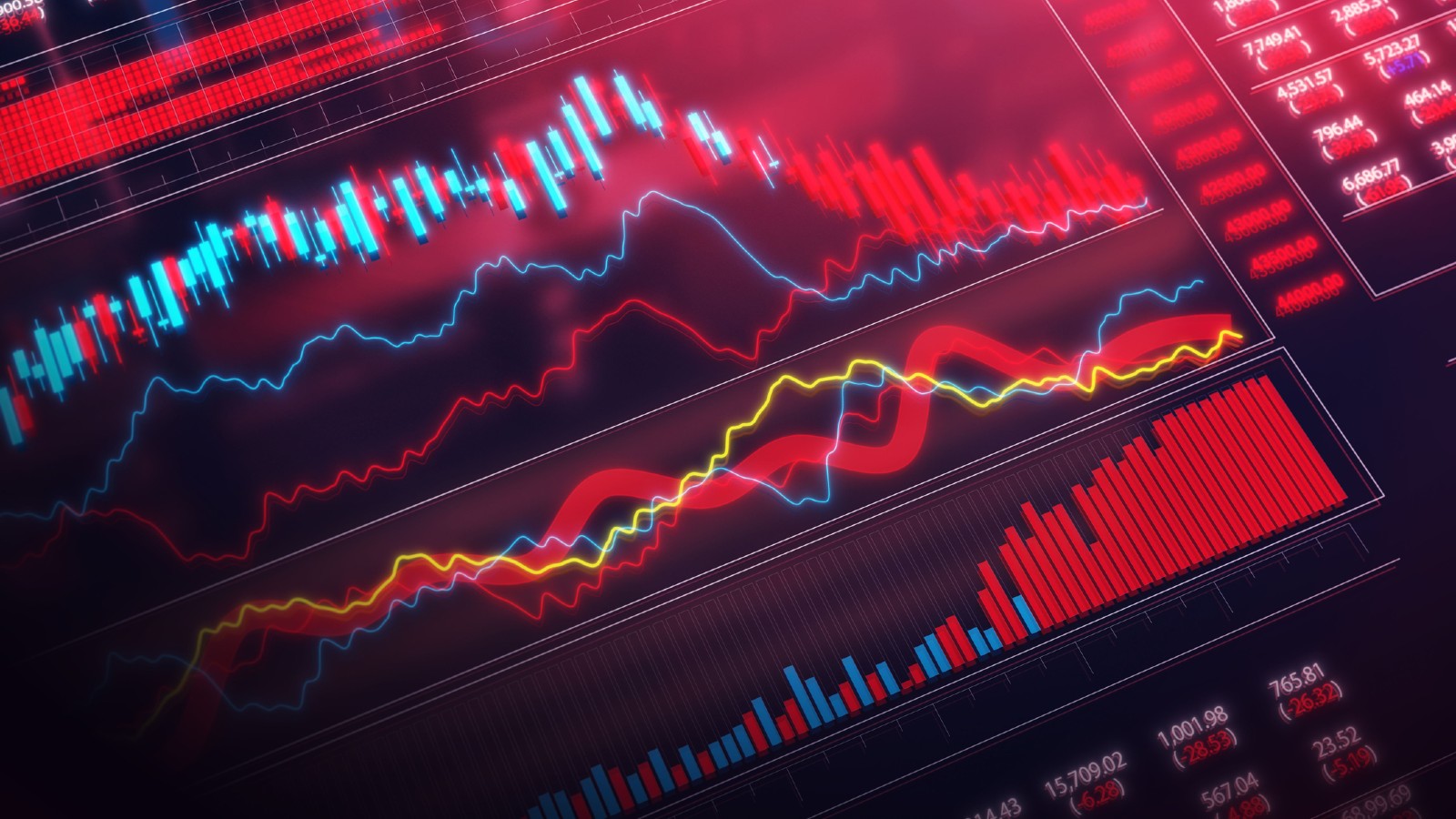
Market participants piled out of pricey tech and communications services stocks Monday after a cheap AI chatbot from China challenged the idea that big U.S. companies will profit from spending scores of billions of dollars to build out expensive data centers.
Markets offered a knee-jerk reaction to the emergence of DeepSeek, an open-source AI chatbot that compares favorably or even beats the performance of much more expensive offerings from the likes of OpenAI and Meta Platforms (META).
The app, which jumped to the top of most popular downloads on Apple's (AAPL) app store, could be a serious threat to the Magnificent 7 stocks that have done much of the bull market's heavy lifting.
"Tech stocks are suffering today on worries that Beijing is becoming increasingly competitive in the high-stakes artificial intelligence race," writes José Torres, senior economist at Interactive Brokers. "The concerns were sparked by Chinese AI firm DeepSeek announcing that its open-source model was developed in just two months, costing less than $6 million dollars."
The economist adds that some observers contend that "there's no way the advanced technology was built so fast alongside such a modest figure." Nevertheless, the idea that DeepSeek could be a "Sputnik" moment for U.S. big tech sent shockwaves through the sector.
At the closing bell, the blue chip Dow Jones Industrial Average rose 0.7% to 44,713, helped by some of its more defensive components. However, the broader S&P 500 shed 1.5% to 6,012, while the tech-heavy Nasdaq Composite plunged 3.1% to 19,341.
As bad as Monday's market action was, the S&P 500 is back to levels last seen 10 days ago. That said, the market's relentless bid for all things AI was always a risk, Torres notes.
"This bull market's accelerant from 2023 has been the boom in artificial intelligence," writes Torres. "However, one of the major risks to the rally is the overreliance on one specific theme rather than broad outperformance by the entire market. The concentration of upside gains has generated vulnerabilities because if anything goes wrong with AI, then painful selling ensues."
It's also important to remember that knee-jerk trading reactions are usually overwrought, whether positive or negative. As Arnim Holzer, global macro strategist at Easterly EAB, cautioned investors, although DeepSeek "delivered surprising efficiency using older-generation chips, the market's reaction may be premature due to early stage data and uncertain enterprise applications."
Econ news in focus
A light economic calendar featured an upside surprise in sales of new homes. Indeed, new home sales rose to 698,000 in December from an upwardly revised 674,000 in January, according to the U.S. Census Bureau. That was above economists' forecast for 672,000 new homes. The median sales price of new houses sold in December 2024 was $427,000, while the average sales price was $513,600.
"The slight upward surprise in new home sales last month is trivial compared to the typically huge margin of error in the numbers," writes Oliver Allen, senior U.S. economist at Pantheon Economics. "The big picture is that sales have roughly bounced around the 675,000 mark for much of the past year or two, as mortgage demand has remained weak but new home sales have continued to be supported by a lack of existing homes on the market."
The current sales index of the NAHB homebuilders' confidence survey "points to broadly steady sales in the near term," the economist adds. However, mortgage rates "remain too high for sales to climb significantly higher," Allen says, "while the softening labor market likely will limit the flow of potential homebuyers."
Nvidia by the numbers
Nvidia stock closed down almost 17% Monday after Chinese AI chatbot DeepSeek managed to match or beat the performance of competitors without relying on the semiconductor company's most expensive chips. Given that most of the other Mag 7 stocks are monopolistic AI plays (and Nvidia customers), the implications of cheap AI throw the U.S. industry's profit playbook into doubt.
The selloff erased more than $600 billion in market cap from Nvidia stock at one point late in the session, or the biggest one-day rout for a single stock in history. To put the damage in context, with a closing loss of $591 billion in shareholder value, Nvidia lost more than the entire market cap of UnitedHealth Group (UNH), the nation's largest health insurer and a Buy-rated Dow Jones stock.
True, few names can beat Nvidia when it comes to long-term outperformance. Anyone who put $1,000 into Nvidia stock 20 years ago would be very pleased with their returns today. And Nvidia remains in favor with the bulk of Wall Street analysts. It routinely makes the list of analysts' top S&P 500 stocks to buy.
The DeepSeek shock could change the investment thesis on Nvidia – as well as the wider U.S. AI sector – but one day's shellacking does not make a trend. The Street remains bullish on NVDA stock, giving it a rare consensus recommendation of Strong Buy, according to S&P Global Market Intelligence.
Just remember that shares are likely to be more volatile than usual, especially with Nvidia set to report fourth-quarter earnings on February 26.







